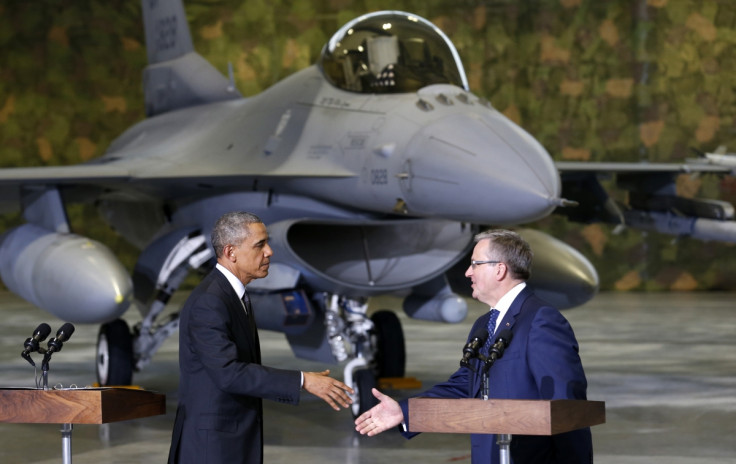Poland's 25 Years of Communist Freedom Shows Ukraine European Future

Poland's emergence from the ashes of communist Europe to its current position as the European Union's sixth largest economy is one of the continent's most remarkable stories.
Peace, stability and integration with Europe have allowed the country to thrive in a way that was not possible during decades of subjugation to its former Russian masters.
June 4 marks 25 years since Poland first held partially-free elections, resulting in a massive victory for a formerly-banned free trade union. The cracks in the Berlin Wall were beginning to form. The Polish result shocked Eastern Europe, where similar elections were held, resulting in similar defeats for communist regimes.
Twenty-five years later, with its neighbour Ukraine locked in seemingly perpetual turmoil, the anniversary of Poland's Freedom Day has taken on a special resonance. It shows both the successes and failures of the post-Cold War European project.
While Ukraine was part of the Soviet Union and Poland was a Soviet satellite state, both countries were equally impoverished when communism collapsed. Their political systems and economic prosperity were more or less evenly matched, while they have similar population sizes today.
According to the World Bank, Poland's gross domestic product per capita has reached $12,710 while Ukraine's stands at $3,867, more than three times lower. While quality of life has soared for Polish citizens, it has stagnated for Ukrainians.
Where Poland pursued free-market economic policies, Ukraine has been hampered by corruption. Warsaw cut subsidies to state enterprises, opened borders to trade and introduced the rule of law and order, while embracing Western technology and innovation.
While Poland opened up to Western modernity, Ukraine followed Moscow's lead and has performed poorly ever since. The first two leaders in post-Soviet Kiev held power for 13 years in total, holding off on structural reforms to the economy. Oligarchs cashed in on privatisation and bought political influence as a culture of cronyism festered.
What's more, Ukraine now faces separatist insurgency in its East, as Moscow-backed rebels spread violence and disorder in a bid to hamper the country's post-Yanukovych transition. Its economic weakness is playing out as geopolitical weakness.
Poland has undoubtedly benefitted from substantial economic support from the European Union. Sizable grants have allowed the country to overhaul its infrastructure.
There have also been mistakes. Compared to other economies in Western Europe, Poland is still relatively poor. Its economy is mired in red tape and bureaucracy and the labour market is tightly regulated. Many Poles feel forced to travel abroad in search of well-paid jobs.
Yet, on the whole, Poland's move towards a free market democracy has yielded impressive benefits for its citizens. For Ukrainians, the anniversary offers a glimpse of what could have been.
© Copyright IBTimes 2025. All rights reserved.






















